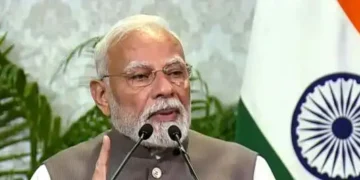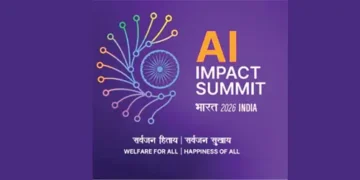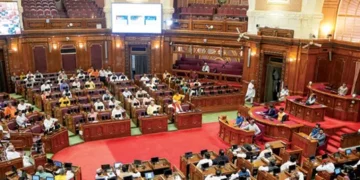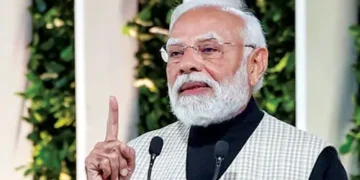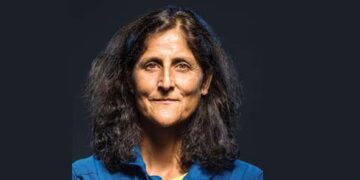Deepak Dwivedi
IN a powerful affirmation of his enduring connection with the Indian electorate, Prime Minister Narendra Modi has once again been ranked as the world’s most popular democratic leader, securing a remarkable 75 per cent approval rating, according to the latest data from the U.S.- based firm Morning Consult.
The rating, a measure of domestic approval within each leader’s own country, places PM Modi far ahead of his global peers and stands as a testament to the deep-seated trust and confidence he commands across the world’s largest democracy after more than a decade in office.
Commanding lead
The latest survey, conducted between July 4 and 10, found that three out of every four Indians approve of the Prime Minister’s performance, while only 18 per cent disapprove and 7per cent remain undecided. His commanding lead is stark when compared to other world leaders on the list; South Korea’s President Lee Jaemyung came in a distant second with 59 per cent approval, followed by Argentina’s Javier Milei at 57 per cent.
The consistent high ranking has been hailed by leaders as a matter of national pride. Union Minister Sarbananda Sonowal celebrated the achievement, stating, “Backed by over a billion Indians. Admired across continents. His strong, decisive leadership ensures Bharat’s rise and the world’s respect”.
This sentiment underscores a core political reality: PM Modi’s top position in the tracker is built upon an exceptionally solid foundation of domestic support, a trend corroborated by a wide array of independent and highly credible polling organiastions. This is not an isolated finding, but the continuation of a long-term trend. Prime Minister Modi has consistently topped Morning Consult’s tracker since it began comprehensive tracking, starting with a 70 per cent approval in September 2021, rising to71per cent in early 2022, peaking multiple times at 76per cent in 2023, and hitting a high of 78 per cent in February 2024.
For years, premier global research institutions have consistently recorded PM Modi’s extraordinary popularity using their own rigorous methodologies. The Pew Research Center, a globally respected non-partisan fact tank, found in a 2023 survey that about eight-in-ten Indians (79 per cent) hold a favourable view of the Prime Minister, with a strong majority of 55 per cent expressing a “very favourable” opinion.
This data is part of a consistent pattern of high favourability recorded by Pew, which stood at 87 per cent in 2015, 81per cent in 2016, and reached an astronomical peak of 88 per cent in 2017.1 Similarly, Gallup, one of the world’s oldest and most respected polling firms, found in late 2023 that 73per cent of Indians approved of PM Modi’s leadership. Their analysis noted that his approval ratings have not dipped below a formidable70 per cent since his resounding re-election victory in 2019.
This sustained approval coincides with a dramatic rise in public confidence in the national government, which stood at 82per cent in 2023 and has hovered near 80per cent for the past five years—a stark contrast to the 56per cent recorded the year before he first took office. This widespread approval appears deeply connected to a growing sense of optimism and tangible progress across the nation.
A majority of Indians feel their living standards are improving, and economic optimism in the country is higher than in most other major economies. This positive sentiment is further bolstered by visible improvements in daily life. In 2023, satisfaction with the country’s roads and public transport systems reached new highs, with India’s public transport satisfaction (76per cent) outranking that of major economies like the US, UK, and Canada.
The reasons behind PM Modi’s deep connection with the public are multi-faceted. A May 2023 survey by the esteemed Lokniti-CSDS programme found that his powerful oratory skills (25per cent), a focus on development (20per cent), and a reputation for being a hard-working and charismatic leader (13per cent each) are key drivers of his popularity. This is coupled with a widespread belief among Indians that the country’s global stature has grown significantly under his leadership, with 63 per cent of respondents agreeing with this sentiment.
Domestic issues
His government also receives high marks for its performance on key domestic issues. According to surveys by IpsosIndiaBus, the administration has consistently earned praise for its work on the education system (71per cent), sanitation and cleanliness (60per cent), and healthcare (55 per cent).
The same pollster recorded PM Modi’s approval rating soaring to 75 per cent in February 2024, with citizens in the northern (92per cent) and western (80per cent) parts of the country showing particularly strongsupport. The latest high rating also coincides with a significant historical milestone for the Prime Minister. On July 26, 2025, he completed 4,079 days in office, surpassing Indira Gandhi to become India’s second-longest serving Prime Minister in an uninterrupted term, behind only Jawaharlal Nehru.
After a decade at the helm, a period in which many democratically elected leaders see their support wane, PM Modi’s approval ratings tell a story of remarkable political resilience.
